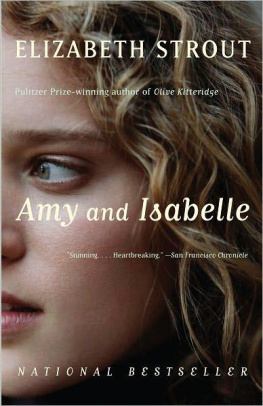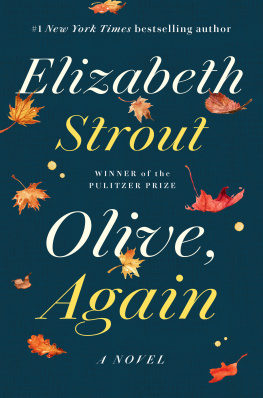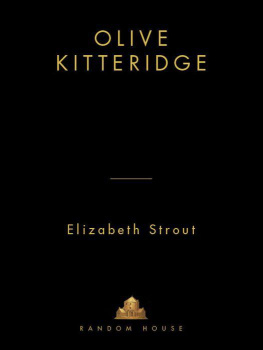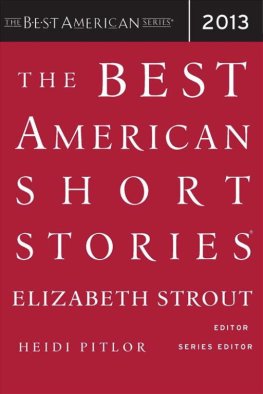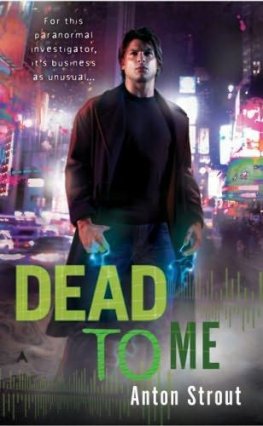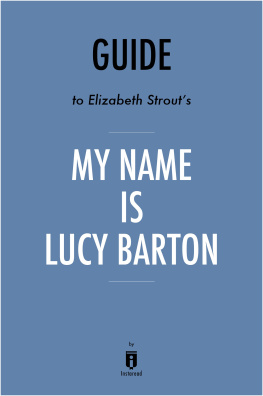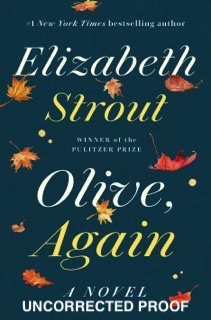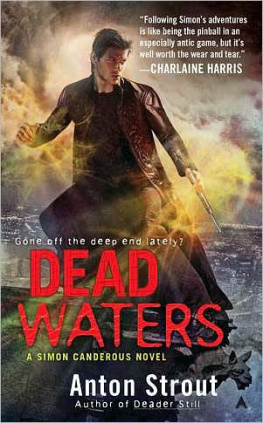Elizabeth Strout - Amy And Isabelle
Here you can read online Elizabeth Strout - Amy And Isabelle full text of the book (entire story) in english for free. Download pdf and epub, get meaning, cover and reviews about this ebook. year: 2000, publisher: Vintage, genre: Science fiction. Description of the work, (preface) as well as reviews are available. Best literature library LitArk.com created for fans of good reading and offers a wide selection of genres:
Romance novel
Science fiction
Adventure
Detective
Science
History
Home and family
Prose
Art
Politics
Computer
Non-fiction
Religion
Business
Children
Humor
Choose a favorite category and find really read worthwhile books. Enjoy immersion in the world of imagination, feel the emotions of the characters or learn something new for yourself, make an fascinating discovery.
- Book:Amy And Isabelle
- Author:
- Publisher:Vintage
- Genre:
- Year:2000
- Rating:3 / 5
- Favourites:Add to favourites
- Your mark:
- 60
- 1
- 2
- 3
- 4
- 5
Amy And Isabelle: summary, description and annotation
We offer to read an annotation, description, summary or preface (depends on what the author of the book "Amy And Isabelle" wrote himself). If you haven't found the necessary information about the book — write in the comments, we will try to find it.
Amy And Isabelle — read online for free the complete book (whole text) full work
Below is the text of the book, divided by pages. System saving the place of the last page read, allows you to conveniently read the book "Amy And Isabelle" online for free, without having to search again every time where you left off. Put a bookmark, and you can go to the page where you finished reading at any time.
Font size:
Interval:
Bookmark:
AMY and ISABELLE
Amy and Isabelle is an impressive debut novel with an expansiveness and inventiveness that is the mark of a true storyteller.
The Philadelphia Inquirer
Lovely, powerful a kind of modern Rapunzel.
Newsweek
If you read one book all year, let it be this exquisite first novel.
Mademoiselle
Strouts insights into the complex psychology between [mother and daughter] result in a poignant tale about two comings of age.
Time
Poignant sensitively imagined. [Amy and Isabelle] recalls something of the elegiac charm of Our Town.
The Christian Science Monitor
Elizabeth Strouts auspicious first novel is tender and vigorous, full of surprising turns and quiet unfoldings, and it has a realism that is at once lovely and unsparing in its power.
The Denver Post
The reader discovers [in Amy and Isabelle] a writer whose respect and care for her characters demand ours.
USA Today
Elizabeth Strout shows a remarkable gift for honing in on and illuminating the most subtle nuances of time, place, and mood so that, in her hands, characters become astonishingly real.
Mirabella
A genuine literary talent. Strout uses remarkable restraint to deliver credible, and indeed likeable, characters whose emotions churn dangerously close to the surface. [T]he writingsensitive, direct and polishedis nearly flawless.
The Rocky Mountain News
Absorbing.
Elle
Seldom has a writer captured the complexities of the love, pain and forgiveness between mother and daughter as well as this promising young novelist.
San Antonio Express-News
Strout has an uncanny ability to portray the poignant power struggle between teenage girls and their mothers. [A] finely crafted novel.
The Hartford Chronicle
Revelatory.
Entertainment Weekly
Impressive. Strout writes with abundant warmth
People
A lyrical, closely observant first novel. Strout demonstrates exceptional poise, and an uncommon ability to render complex emotions with clarity and a sympathetic intelligence.
Kirkus Reviews
Strouts novel is elegantly told.
The Orlando Sentinel
Born in Portland, Maine, Elizabeth Strout now lives in New York City with her husband and daughter. She has been teaching literature and writing at Manhattan Community College for ten years and has also taught writing at the New School. Her fiction has appeared in many magazines, including The New Yorker.

FIRST VINTAGE CONTEMPORARIES EDITION, FEBRUARY 2000
Copyright 1998 by Elizabeth Strout
All rights reserved under International and Pan-American Copyright Conventions. Published in the United States by Vintage Books, a division of Random House, Inc., New York. Originally published in hardcover in the United States by Random House, Inc., New York, in 1998.
Vintage is a registered trademark and Vintage Contemporaries and colophon are trademarks of Random House, Inc.
This is a work of fiction. The characters and events in it are inventions of the author and do not depict any real persons or events.
The Library of Congress has cataloged the Random House edition as follows:
Strout, Elizabeth.
Amy and Isabelle/by Elizabeth Strout.
p. cm.
eISBN: 978-1-4000-7773-1
I. Title.
PS3569.T736A9 1999
813.54dc21
98-19995
www.vintagebooks.com
v3.1_r1
For Zarina
ACKNOWLEDGMENTS
I would like to thank Marty Feinman,
Daniel Menaker, and Kathy Chamberlain.
Their support has been immeasurable.
I T WAS TERRIBLY hot that summer Mr. Robertson left town, and for a long while the river seemed dead. Just a dead brown snake of a thing lying flat through the center of town, dirty yellow foam collecting at its edge. Strangers driving by on the turnpike rolled up their windows at the gagging, sulfurous smell and wondered how anyone could live with that kind of stench coming from the river and the mill. But the people who lived in Shirley Falls were used to it, and even in the awful heat it was only noticeable when you first woke up; no, they didnt particularly mind the smell.
What people minded that summer was how the sky was never blue, how it seemed instead that a dirty gauze bandage had been wrapped over the town, squeezing out whatever bright sunlight might have filtered down, blocking out whatever it was that gave things their color, and leaving a vague flat quality to hang in the airthis is what got to people that summer, made them uneasy after a while. And there were other things too: Further up the river crops werent rightpole beans were small, shriveled on the vine, carrots stopped growing when they were no bigger than the fingers of a child; and two UFOs had apparently been sighted in the north of the state. Rumor had it the government had even sent people to investigate.
In the office room of the mill, where a handful of women spent their days separating invoices, filing copies, pressing stamps onto envelopes with a thump of the fist, there was uneasy talk for a while. Some thought the world might be coming to an end, and even those women not inclined to go that far had to admit it might not have been a good idea sending men into space, that we had no business, really, walking around up there on the moon. But the heat was relentless and the fans rattling in the windows seemed to be doing nothing at all, and eventually the women ran out of steam, sitting at their big wooden desks with their legs slightly apart, lifting the hair from the back of their necks. Can you believe this was, after a while, about all that got said.
One day the boss, Avery Clark, had sent them home early, but hotter days followed with no further mention of any early dismissal, so apparently this wasnt to happen again. Apparently they were supposed to sit there and suffer, and they didthe room held on to the heat. It was a big room, with a high ceiling and a wooden floor that creaked. The desks were set in pairs facing each other, two by two, down the length of the room. Metal filing cabinets lined the walls; on top of one sat a philodendron plant, its vines gathered and coiled like a childs clay pot, although some vines escaped and fell almost to the floor. It was the only green thing in the room. A few begonia plants and a wandering Jew left over by the windows had all turned brown. Occasionally the hot air stirred by a fan swept a dead leaf to the floor.
In this scene of lassitude was a woman who stood apart from the rest. To be more accurate, she sat apart from the rest. Her name was Isabelle Goodrow, and because she was the secretary to Avery Clark, her desk did not face anyone. It faced instead the glassed-in office of Avery Clark himself, his office being an oddly constructed arrangement of wood paneling and large panes of glass (ostensibly to allow him to keep an eye on his workers, though he seldom looked up from his desk), and it was commonly referred to as the fishbowl. Being the bosss secretary gave Isabelle Goodrow a status different from the other women in the room, but she was different anyway. For example, she was impeccably dressed; even in this heat she wore pantyhose. At a glance she might seem pretty, but if you looked closer you saw that in fact it didnt really get that far, her looks stopped off at plain. Her hair was certainly plainthin and dark brown, pulled back in a bun or a twist. This hairstyle made her look older than she was, as well as a little school-marmish, and her dark, small eyes held an expression of constant surprise.
Font size:
Interval:
Bookmark:
Similar books «Amy And Isabelle»
Look at similar books to Amy And Isabelle. We have selected literature similar in name and meaning in the hope of providing readers with more options to find new, interesting, not yet read works.
Discussion, reviews of the book Amy And Isabelle and just readers' own opinions. Leave your comments, write what you think about the work, its meaning or the main characters. Specify what exactly you liked and what you didn't like, and why you think so.

